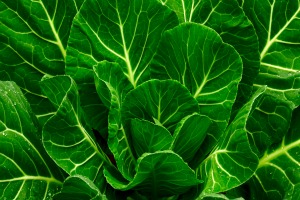Leafy greens have long been known to be nutritional powerhouses. They are an excellent source of fiber, vitamins, minerals, and disease-fighting phytonutrients.
But a new study revealed what might be the most exciting news yet: adding leafy greens to your diet may protect you from cognitive decline.
Researchers at Rush University Medical Center in Chicago tracked the diets and cognitive abilities of more than 950 older adults for an average of five years. They found a significant decrease in the rate of cognitive decline for participants who consumed greater amounts of green leafy vegetables.
Even better news? You don’t have to consume bushels of kale every day to reap the benefits: people who ate one to two servings of leafy greens per day had the cognitive ability of a person 11 years younger than those who consumed none.
When the researchers studied individual nutrients linked with slowing cognitive decline, they found that vitamin K, lutein, folate, and beta-carotene were most likely helping to keep the brain healthy.
Martha Clare Morris, Sc.D., assistant provost for community research led the study. Other studies have linked folate and beta-carotene with slower cognitive decline, but Morris said this study revealed some new information:
“Our study identified some very novel associations. No other studies have looked at vitamin K in relation to change in cognitive abilities over time, and only a limited number of studies have found some association with lutein.”
Morris explained why the findings are significant:
“Losing one’s memory or cognitive abilities is one of the biggest fears for people as they get older. Since declining cognitive ability is central to Alzheimer’s disease and dementias, increasing consumption of green leafy vegetables could offer a very simple, affordable and non-invasive way of potentially protecting your brain from Alzheimer’s disease and dementia.
With baby boomers approaching old age, there is huge public demand for lifestyle behaviors that can ward off loss of memory and other cognitive abilities with age. Our study provides evidence that eating green leafy vegetables and other foods rich in vitamin K, lutein and beta-carotene can help to keep the brain healthy to preserve functioning.”
Indeed, adding green leafy vegetables to your diet is simple and affordable. Even if you have limited space, you can grow greens like spinach, mustard greens, and kale using vertical gardening and small space gardening techniques.
Leafy greens can be cooked, eaten raw in salads, juiced, or blended into smoothies. Very little effort is required for very large health benefits!
Additional Resources:
[amazon text=Greens 24/7: More Than 100 Quick, Easy, and Delicious Recipes for Eating Leafy Greens and Other Green Vegetables at Every Meal, Every Day&chan=default id&asin=1615192271]
[amazon text=The Complete Leafy Greens Cookbook: 67 Leafy Greens and 250 Recipes&chan=default id&asin=0778804577]
[amazon text=Best Green Eats Ever: Delicious Recipes for Nutrient-Rich Leafy Greens, High in Antioxidants and More (Best Ever)&chan=default id&asin=1581572875]

